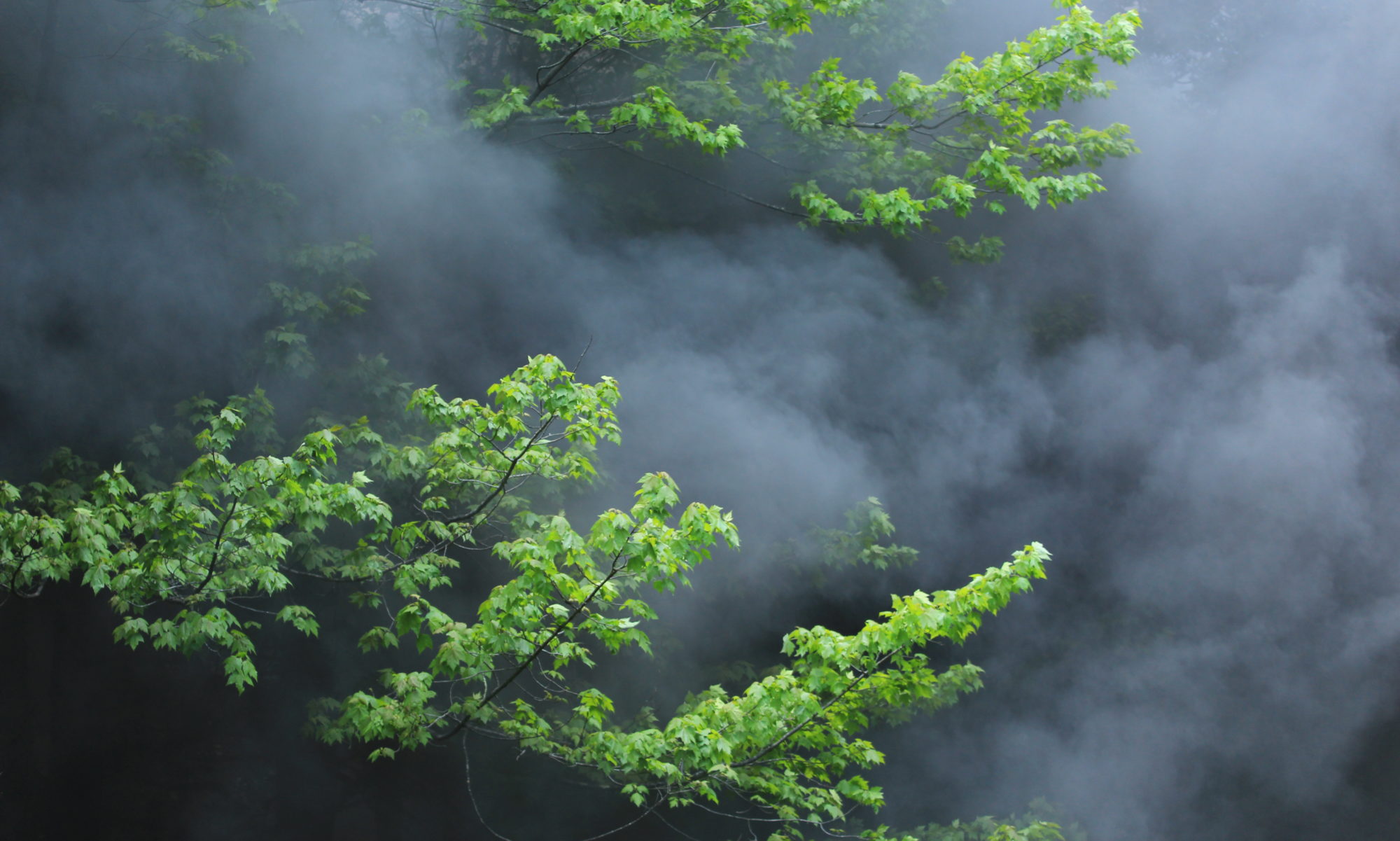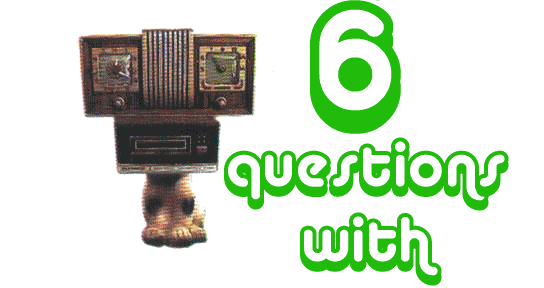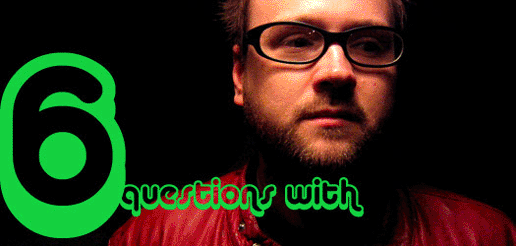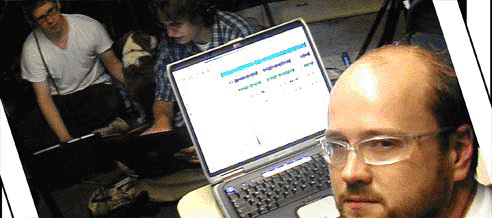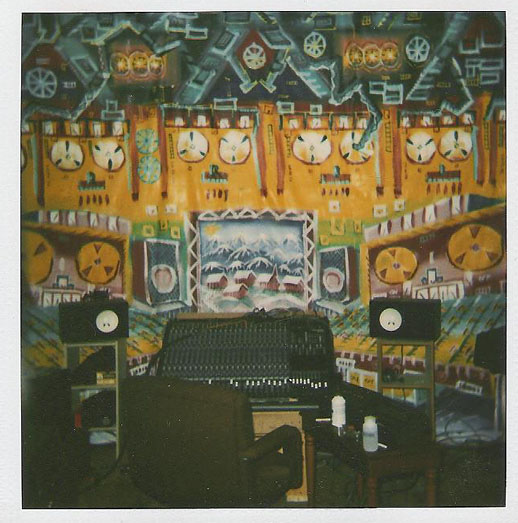These 3 “6 Questions With…” interviews are with ex-members of The Apples in Stereo, all of whom were around in Elephant 6’s formative years. Hilarie Sidney’s pop project with Per Ole Bratset is The High Water Marks; she left the Apples not long after the interview was conducted. Like Hilarie, Chris Parfitt and Jim McIntyre played on the original Apples recordings, when the band was just “The Apples.” Chris fronts the Elephant 6 band Vince Mole & His Calcium Orchestra, and Jim’s experimental recordings are released under the moniker Von Hemmling.
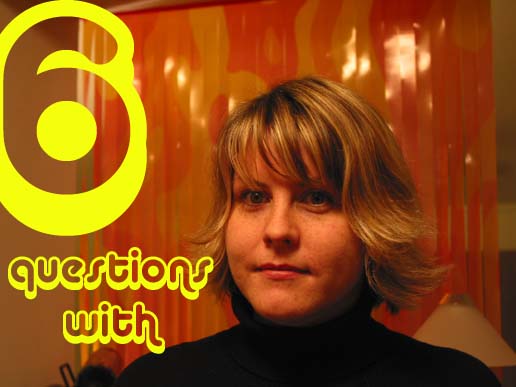
Hilarie Sidney/The Apples in Stereo & The High Water Marks: July 27, 2006
Hilarie Sidney has been the drummer and co-singer/songwriter of The Apples in Stereo since the formation of the band, and her voice has been prominent on all of the Apples‘ releases, contributing memorable tracks such as “Winter Must Be Cold” on the band’s debut, Fun Trick Noisemaker, “20 Cases Suggestive of…” on 2000’s The Discovery of a World Inside the Moone, and “Rainfall” on 2002’s Velocity of Sound. After that last album, she found a new outlet for her songwriting skills in The High Water Marks, a collaboration with Per Ole Bratset of Norway’s Palermo. (She seems to enjoy creative collaboration with others, having co-written songs for years with Robert Schneider, and splitting composition duties with Lisa Janssen in the short-lived Elephant 6 band Secret Square.) Hilarie agreed to shed some light on her various projects, past and present, with Optical Atlas.
1) Are you involved in the post-production process on the new Apples in Stereo album, New Magnetic Wonder? Can you describe how this album will compare to the previous Apples albums?
Actually, I haven’t really been involved at all. This is the album that I have been least involved with. In the past I have been much, much more a part of the creative process. I think it is a natural progression for The Apples in Stereo. It has a little bit of everything. I think it sounds great and I think people are really going to like it! The songs are ultra-catchy.
2) I loved Songs About the Ocean. Can we expect another High Water Marks album in the near future?
Yes, actually we are finishing up our new record. It is called Polar, it has 13 songs, and it will be coming out in February. I am really excited about it. I recorded the whole thing myself, and I will also be mixing it. I’ve never done it before, so I’m nervous, but it’s OK because I am not too concerned about fidelity and the technical aspect. It has been a labor of love, and it’s taken us a long time to finish it, since between the time we started it and now, my husband and I had a baby who is now 7 months old.
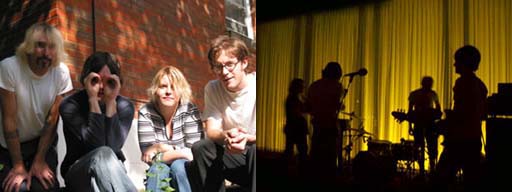
3) How did High Water Marks first come together?
Per Ole and I met at an Apples show in Oslo. We talked for a long time after the show. We loved a lot of the same music, so we had a lot to talk about. He gave me a CD of his songs, and I was blown away. We started emailing and decided to record through the mail. The post office was a little slow, and we lost a couple of packages along the way, so we decided our best bet would be to get together for a week and get as much as possible done. Soon after that, Per Ole came to live in the US, and we recruited Jim Lindsay and Mike Snowden to join us on drums and bass. They were the live band, and the record was only me and Per Ole. The new record is all four of us though, so it’s been super cool.
4) There’s a select society of us that are big Secret Square fans, even though there was just a single and a full-length and the band is pretty definitively dead. Can you explain how Secret Square came about, and why it ended?
Secret Square was me and Lisa Janssen. She was my best pal at the time. We worked together, and loved a lot of the same music, and were obsessing over a lot of the same stuff. We used to call in to work together and meet at my house and record on the 4-track. It was such a lot of fun, and we decided to make a 7-inch and then a record. We put out the records and even played live a couple of times opening for TFUL, with Jeff Mangum on drums and Robert Schneider on bass. Lisa moved away, and we fully intended to keep recording and making music, but time and distance never really panned out, unfortunately. I think we both wanted to, but it was too hard.
5) How does the Lexington music scene compare to Denver’s?
Denver’s rock scene is more of a typical big city rock scene, whereas Lexington is more of a small town college-type scene. In Lex, you find a lot more noise, jazz, experimental-type stuff, and although there are plenty of rock bands it seems a bit more diverse to me. I haven’t lived in Denver for a few years now though, so I can’t honestly say for sure. I love Denver, and there is a lot I miss about it, but I find Lexington music to be a little more interesting I suppose.
6) What was the first album you ever bought?
My first album as a gift was Magical Mystery Tour from my big brother when I was 8 years old. I probably bought the Human League record a year or so later… you know, the one with “Don’t You Want Me Baby?” So, yeah, I think that would be it…Human League.
* * *
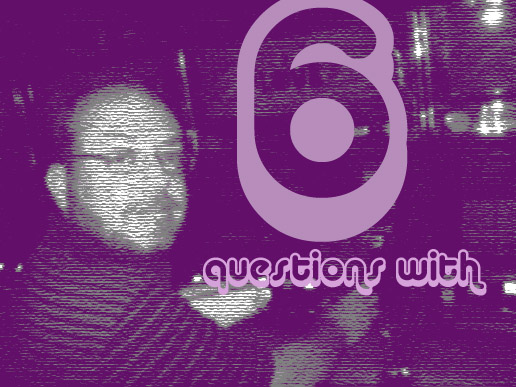
Chris Parfitt/Vince Mole and His Calcium Orchestra: August 27, 2006
Vince Mole and His Calcium Orchestra is understandably one of the more obscure Elephant 6 bands: its catalog exists entirely on vinyl and cassette. But that seems appropriate, suiting the lo-fi fuzz-rock contained within. Lead singer/songwriter Chris Parfitt spent time with The Apples in Stereo during that band’s formative years, lending his distinctive electric guitar to the Tidal Wave EP, and on tracks like “Motorcar” you can hear the aesthetic of noise that would come to define Vince Mole‘s songs, in particular the heavy, churning “Nothing,” and the exhilarating riff of “It’s Raining in My Mouth” (both on the self-titled single released by Jonathan Whiskey/Happy Happy Birthday to Me). Now Parfitt–who recently reconnected with some old Elephant 6 friends at the Os Mutantes reunion in New York–is planning the return of the Calcium Orchestra (bandmates include Kingsauce members Rich Chodes and Kevin Swope), and obliged Optical Atlas with a brief history of the band and a preview of what’s to come.
1) Can you sum up your history with the Apples? It seems you were in the band for a short period of time, until 1993, correct?
I met Robert [Schneider] in roughly July/August 1992 when he answered an ad my friends and I had put in Denver’s Westword looking for a bass player. That didn’t work out, but he and I hit it off over our mutual love of the Beach Boys and Pavement (among other things). Before long he introduced me to Jim McIntyre and Hilarie Sidney, and the four of us started the Apples. The original idea was to have a kind of quirky lo-fi pop band but with big fuzz/noise guitar atop. To my ears the best Apples recordings were the ones we did straight to boombox in the rehearsal space: rough as hell but they rocked like nobody’s bizness. The backing track to “Haley” on the first EP is from those tapes, incidentally. At any rate, various dramas both within and without the Apples kind of fucked everyone and everything up. My reaction to the situation(s) was unfortunately to crawl inside a bottle of beer. Eventually, after starting to record Vince Mole songs (all by my lonesomes on 4-track…an E6 cassette called Friends, Psychics, Visionaries…Lend Me Your Hair allegedly existed but the sands of time seem to have dissolved all copies…all I have is an old dub myself), I left the Apples, my then girlfriend, and the city of Denver, by popular demand. I headed for Coney Island where I, the esteemed Kevin Swope, and my childhood plague/bass player Rich Chodes hunkered down in an absolute shithole and recorded….
2) How did you come up with the name Vince Mole and His Calcium Orchestra?
“Vince Mole” is the name of a fake actor in a bit from the Firesign Theater record Dear Friends. If you haven’t heard them do yourself a favor and buy all their late 60’s/early 70’s LPs pronto. Greatest comedy records ever made.
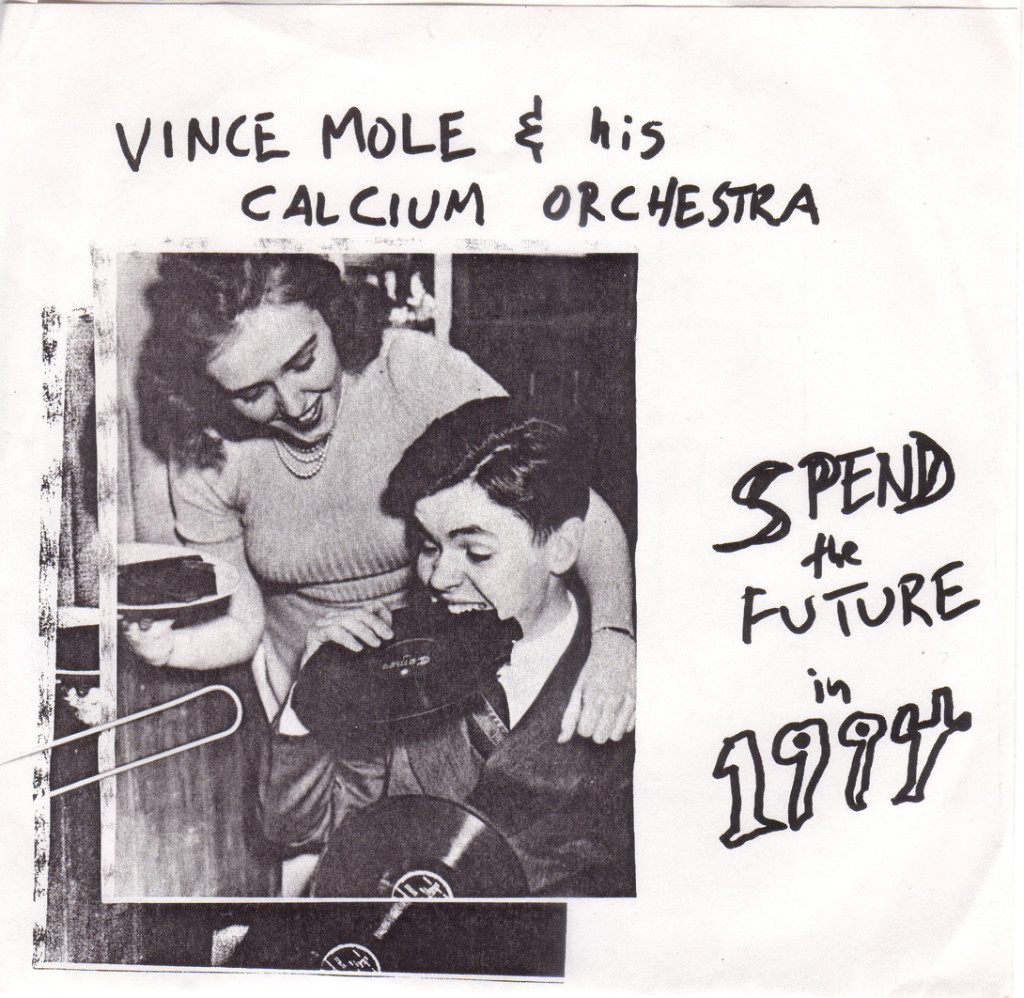
3) The first Vince Mole 7-inch EP was entitled Spend the Future in 1994. From the title can we imply that the recordings actually date back to ’94?
Some of them, yes. “Hitch,” “Droopy,” and “Show Up” were definitely recorded that October in Coney Island. I subsequently moved back to my home state of New Hampshire where we re-recorded a lot of stuff, but nothing could touch those versions for feel.
4) Do you have any particular recording technique that you identify with Vince Mole? It seems that the vocals are usually mixed pretty low and there’s a very loud and raw (and by that, I mean wonderful) sound in the instruments, particularly on the “Nothing” single–probably my favorite of your songs.
A lot of that is just me disliking my voice. Or sometimes my lyrics. But there’s also something to be said for confusion/murk. I dig the buried vocal/meaning. That sense of sort of floating in the sound. Or maybe I’ve listened to too much early R.E.M. and MBV! Not to mention Dinosaur…in fact, don’t mention them…
5) How often do you find yourself songwriting or recording these days?
Not as often as I’d like, but that’s likely to change as my home studio is just about finished, finally.
6) Will we see a Vince Mole album in the future, either a compilation of past singles or new material?
The short answers are yes and yes. The singles comp will definitely happen, but I’d like to finish up the 2/3-done full CD and put that out first. Exactly WHO will put any of this out is anyone’s guess; we may reactivate our once fledgling Former Brothers label.
* * *
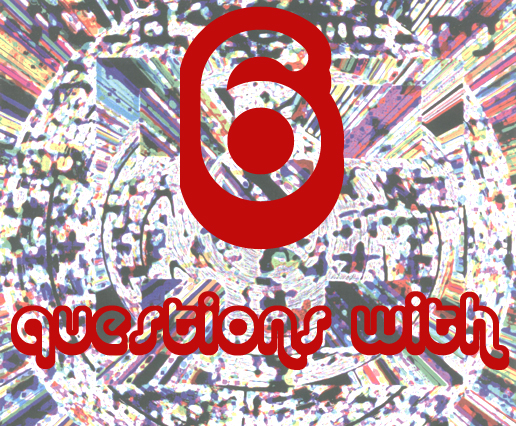
Jim McIntyre/Von Hemmling: June 7, 2006
The best way to begin this interview with might be with an extensive excerpt from a band bio of The Apples in Stereo written by Robert Schneider: “I (Robert S.) had just moved to Denver in late ’91 and I met this guy Jim McIntyre on the local commuter bus from Denver to Boulder, where we both attended university. I (being, according to Jim at the time, pathologically friendly) chatted with him daily and he would try to avoid me, as he is not a morning person. One day I asked him what kind of music he liked, and in that heyday of grunge and hard rock he thought a safe way to end the conversation would be to tell me his favorite band: The Beach Boys. Little did he know I was a certified lifelong Beach Boys nut and, as you can imagine, the conversation picked up after that. (I had not met anybody outside of my few best Elephant-6-to-be buddies who ever claimed the Boys as his/her favorite band. Nor had Jim.) Jim introduced me to Hilarie Sidney, his roommate, who also loved Beach Boys and the Beatles too, and also loved Pavement‘s singles, the Tall Dwarfs, the Unrest and other great underground stuff which turned out to be right up my pop-obsessed alley. They were both also heavily into the Velvet Underground, oldies radio, psychedelics/psychedelia, punk rock, and four track recording (also right up my alley). And Jim owned a bass and Hilarie owned a drum set, which they ‘played’ in a bizarre ‘band’ called Von Hemmling with their various friends, including a guy called John Hill. Quickly becoming best friends, we tossed around plans to start a band and a record label.”
McIntyre left The Apples in Stereo early on, although he contributed to all of their singles in the pre-Fun Trick Noisemaker days: notably he wrote “Touch the Water” and “To Love the Vibration of the Bulb” (which in itself sounds like a Von Hemmling title), and co-wrote “Stop Along the Way” with Schneider. (These early Apples recordings were compiled on the superb Science Faire CD on SpinArt Records.) In their Pet Sounds Studio in Denver, McIntyre hung around as engineer and contributor to some Apples records, but his original project, Von Hemmling, continued in the form of a track here, a track there, often during off-hours while other bands, like Neutral Milk Hotel and The Minders, were out of the studio. He released a 7″ in 1997 on Elephant 6, and the J.W. Kellogg EP followed in 1999. It wasn’t until 2005 that the dam broke and a flood of his recordings were heard, on a self-released full length compilation. Among the 26 tracks on Wild Hemmling are contributions from members of Dressy Bessy and High Water Marks, but don’t be fooled–this isn’t bubble-gum pop, but fiercely experimental and painstakingly assembled pieces of art.
1) I’d like to piece together the history of Von Hemmling. When did you first start recording music? Were you in a band prior to the Apples in Stereo?
Well I started recording at 8-9 yrs old with one of the 1970’s-style portable cassette recorders. You could hold the Play, Record and FF buttons down at the same time to make slow speed recordings. The playback would be pitched up, sped up. Great for making sound tales about insect or robot invasions. I was super into doing just that, bouncing from one tape deck to another. About a year or so later I got a 1/4 inch two-track open reel. I’d steal my sister’s tennis racket, tape a mic to it and play “guitar,” adding distortion and sound on sound tape delay. I thought I sounded like Hendrix. I got a Fostex X-15 four-track cassette in high school in like ’84 and went nuts on it until we established Pet Sounds studio (those recordings make up half of the unreleased CD La Guerre Est Meurtre 2002–my masterwork, to be presumptuous and pretentious). Apples was my first band other than three or four shows Hilarie and I did as Von Hemmling in very early 90’s. Those first gigs were all improv, VH live has always been big on improv. I played fucked-up guitars–one with a bridge made out of a coat hanger, another in which the neck had been snapped off and poorly nailed back together. The whole neck worked like a tremelo bar. I’ve always wound up doing things in a naive, isolated way. I obsessed with music and sound very early but didn’t hang out with other musicians until I was in my early twenties. I didn’t even realize there was a standard tuning for guitar until I was 21!
In ’92 in Denver I met fellow Southerner (I’m from Alabama) Robert and his friends Will [Hart, Olivia Tremor Control] and Jeff [Mangum, Neutral Milk Hotel] and Bill [Doss, Olivia Tremor Control] too (I think, maybe I just met Bill’s music then). We (including Hilarie) were all at the same place creatively, starting to take ourselves seriously as artists, and being part of this family strengthened my resolve to pursue my musical idiosyncrasy. The first officialVH release was the cassette in ’93 (one of the six or so cassettes that were featured in the first, and only, E6 mail order catalog). In ’95 I moved into a great space; it was a former fish market and storefront with a couple large rooms and high ceilings. I had a roommate at first but he attacked me and split my head open and subsequently departed, allowing the recording gear to move in. The first time I was in the building, the landlady showing me around, I saw the future. I knew what the studio was gonna be (although I didn’t foresee the head-smashing part). Anyway I started working on the 1/2-inch eight-track in-between the recording of E6 albums and got real busy by myself. The first vinyl release came out in ’97, the My Country Tis of Thee single. I made all the covers myself during the NMH Aeroplane sessions. There are four or five basic designs (they are construction paper), but each one is unique color-wise. Sometime in ’97 I recorded the J.W. Kellogg EP, which came out as a one-sided 12-inch on Eric Allen’s Shrat label. In ’98 Hilarie convinced me it would be a nice change to make a real band with real people.
I’d gone to Connecticut, recorded a couple of my songs with the Lilys and learned I felt confident directing musicians to play my music. I got a fabulous band together, my musical soulmate Rich Sandoval on guitar and a very progressive rhythm section of Dane Terry on drums and Rob Greene on bass. We played some great shows and recorded our stuff. A couple years later Rob left to concentrate on Dressy Bessy so Robert played bass for a year. This version of the band was very adept at four-hour practices in which we’d spend 20 minutes playing and the rest conversating (we did, however, partially record another set of songs). Next I moved to Kentucky, polled the locals to determine the best, most interesting musicians in town, convinced Mike Snowden, John Ferguson and Trevor Tremaine to play with me, played for a year or so, recorded an album’s worth of songs and got too sick to keep the band going (although I was able to compile and release my first CD, Wild Hemmling, an anthology of “singles” ’95-’04). My songs, while roughly executed, emphasize intricate instrumental parts and fairly complex rhythmic interplay. I’ve been blessed to play with some great, attentive musicians.
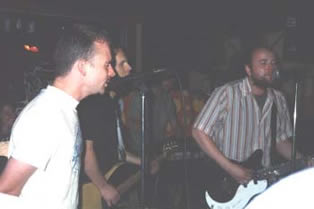
2) What prompted leaving the Apples?
The usual stuff. The actual prompt was the distress of a love triangle, but there was more going on. I was having a hard time being an Apple, putting too much time and emphasis into something that was a little too artistically constraining and foreign (creatively collaborative) to me. The band had changed after we parted with Chris [Parfitt, Vince Mole and His Calcium Orchestra] as well. It went from being a four-part rock band to more of a vision of Robert deal. It’s cool the name changed cause the Apples and the Apples in Stereo were really two different entities. Everything worked out for the best because the breakup set the stage for the future. I got to spend my time on my music, we collaborated on the studio and Robert was able to reach his potential as band leader (although Hilarie was the driving force behind the band). The final thing is that I was very emotionally volatile when I was younger (well I guess I should say more emotionally volatile when I was younger); no one wanted to take a chance going on tour with me. People used to be freaked out about my temper and walked on a few proverbial eggshells around me.
3) Little Fyodor [of Little Fyodor and Babushka, and a friend to Elephant 6 in the early Denver years] posted a comment at Optical Atlas that he’s responsible for naming Von Hemmling. How did that come about?
It was a pisstake. I didn’t particularly like it at first, but kept it outta deference to Fyodor. Now I’m comfy with it.
Okay, so we asked Little Fyodor, who replied: “Pisstake? Funny guy. My memory is this, exactly. We’re hanging with our friend, Alan Smith, in his basement room, listening to music, kinda loud. I don’t remember what we were talking about, but Jim says something, and I couldn’t here him clearly and I said, “What’d you say? Von Hemmling?” And Jim rolls over laughing on Alan’s bed (where he was sitting) and goes, “No, I said, ‘Don Henley!’ But Von Hemmling, that’s great! That’s now the name of my band!!” Before that he wasn’t sure what to call his band (which was him and Hilarie). He gave me two tapes of his music before that, one was called Fluorescent Fish, I forget what the other was called. But he or they hadn’t settled on a name. From that moment on they were Von Hemmling. I can’t imagine why he thinks I would have cared if he had changed his mind anywhere from 5 seconds later to right now. It wasn’t my idea, just what I thought he said…Von Hemmling opened for my band two or three times before Robert showed up and Elephant 6 happened…I wanna add that Jim’s a great guy (if funny, like me!) and I wish him all the best!!”
4) My favorite track on Wild Hemmling might be “Carson City”; do you remember how you went about writing it and putting it together? (Or “China Star.” One of those.)
“Carson City”‘s from 1997, it quotes or paraphrases stuff a barber who used to cut my hair would tell me. He was an elderly dude who was really into atheism and making rubber stamps; his shop walls were covered in stickers and stamps denegrating Christianity. He loved talking about cosmology but didn’t know very much about it. He also had an incredible jukebox full of Western swing tunes. The instumental change after the second chorus sounds like a splice/edit, but actually it’s a mute, I loved those mute buttons. I’d pile on the tracks and mute out the main stuff to emphasize significant changes. Rebecca [Cole] from the Minders is the female voice; I forgot to credit her on the CD. Lovely performance by Rebecca. “China Star” (2004) was an attempt to write the stupidest dramatic lyrics possible. The dumbest idea for a rock opera I could come up with was one about a modern first Christmas/birth of Jesus. Mary and Joseph are on the streets of a modern city, desperately seeking shelter. Joseph is a junkie who makes the ultimate sacrifice of foregoing heroin in order to find a place for the Son of God to be born. It’s the whole “omnipotence of God mediated by human frailty” thing. Stupid shit. The title is taken from a Chinese food restaurant in Lexington. It’s east of my old apartment and for a couple of months after its opening I took my riches there and received otherworldly fast food salvation. Then it got real popular and the cooks became overworked and jaded and terrestrially mortal.
My most recent lyrics are formally conceptual. The lyrics to “Fear of Poor Sexual Perfomance” are actually presented loosely as matrices. I approached each verse as a matrix, which is operated on by the underlying narrative. The point was to transform each verse logically, instead of just writing a linear story. The effectiveness of this approach is debatable, but I’m happy with the results. The coda to the song is more straightforward (and makes the title explicit), although ambivalent as to the resolution being suicide or copulation. As for the music, “China Star” really illustrates my harmonic language. Obviously I neither learned nor was interested in standard music theory, just cobbled together my own sound. Too much naivete and Ives influence. And like all E6’ers I love 60’s pop art music dearly so I attempted to create catchy communications with strange foundations. A lotta “China Star” is based around moveable three note guitar chords, using bunches of major triads to produce a fuzzy sense of tonality. Eventually I realized my disinterest in standard theory was founded on my dislike of the standard tuning system (equal temperament). Now I’ve gone all the way to loving the just intonation, although I’m not necessarily interested in writing justly untempered music. Someone should mass produce just guitars. Online I’ve seen people who make their own, setting the frets differently for each string (Harry Partch made fretless guitars and painted the fret boards to delineate the stops [of course we’d need modified tuners as well, and some standardization of pitches]). Adventurous young musicians who want to use guitars should go this route. But please don’t rely on synthesized just tones. That’s a little too ironic to my mind.
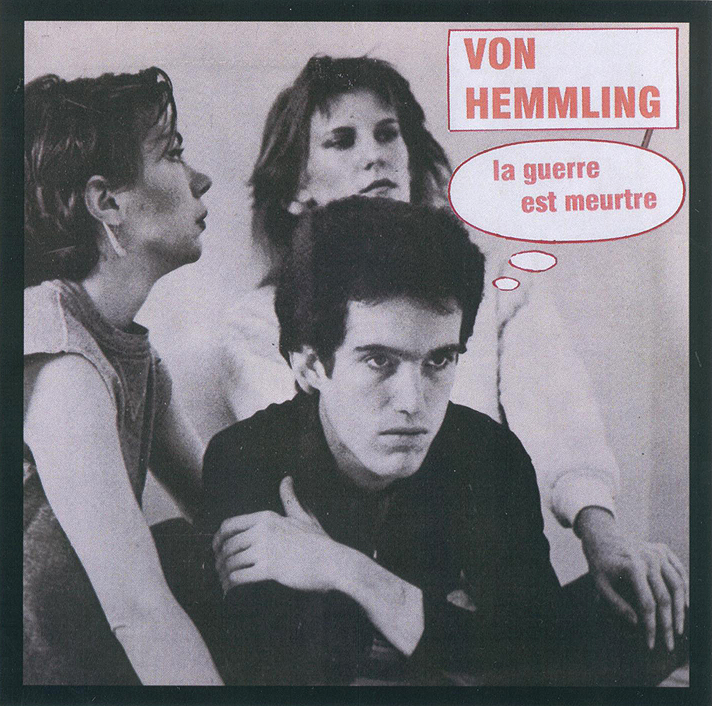
5) You’ve mentioned that you have Chronic Fatigue Syndrome [“CFFS (Chronic Forking Fatigue Syndrome),” on the Wild Hemmling Bonus CD-R given away with copies of the album], and have written a song about it; has this affected your work in music, or has music helped?
Music definitely doesn’t help. All effort makes me sicker. The crux of this illness is an intolerance of any exertion, even mental. The other prominent symptom is an extreme chemical intolerance. The song is about being literally paralyzed by the sickness, or more precisely by something I was taking for it. It took a long time to piece together exactly what has been going on. Right now I’m again doubly fucked up as I’ve had a serious reaction to some other medicine prescribed me over a year ago. Unfortunately it looks like it’s gonna be quite awhile until I’m well again. I’m optimistic someday it’ll happen.
6) Have you retired Von Hemmling, or will there be any new material (or rereleases) in the future?
I’m done with the kinda stuff I’ve been doing, I’m into other things now. I’ll keep the name for whatever creative output comes though, it’s my brand. As for my new direction I want that to be obscure until I finish something, but I’m working when I’m physically able. Rereleases or releases of unreleases? If someone is interested, they can go for it. I did Wild Hemmling myself and sold less than 50 copies before I got extra sick. The rest are in a box at Robert’s house.
* * *

